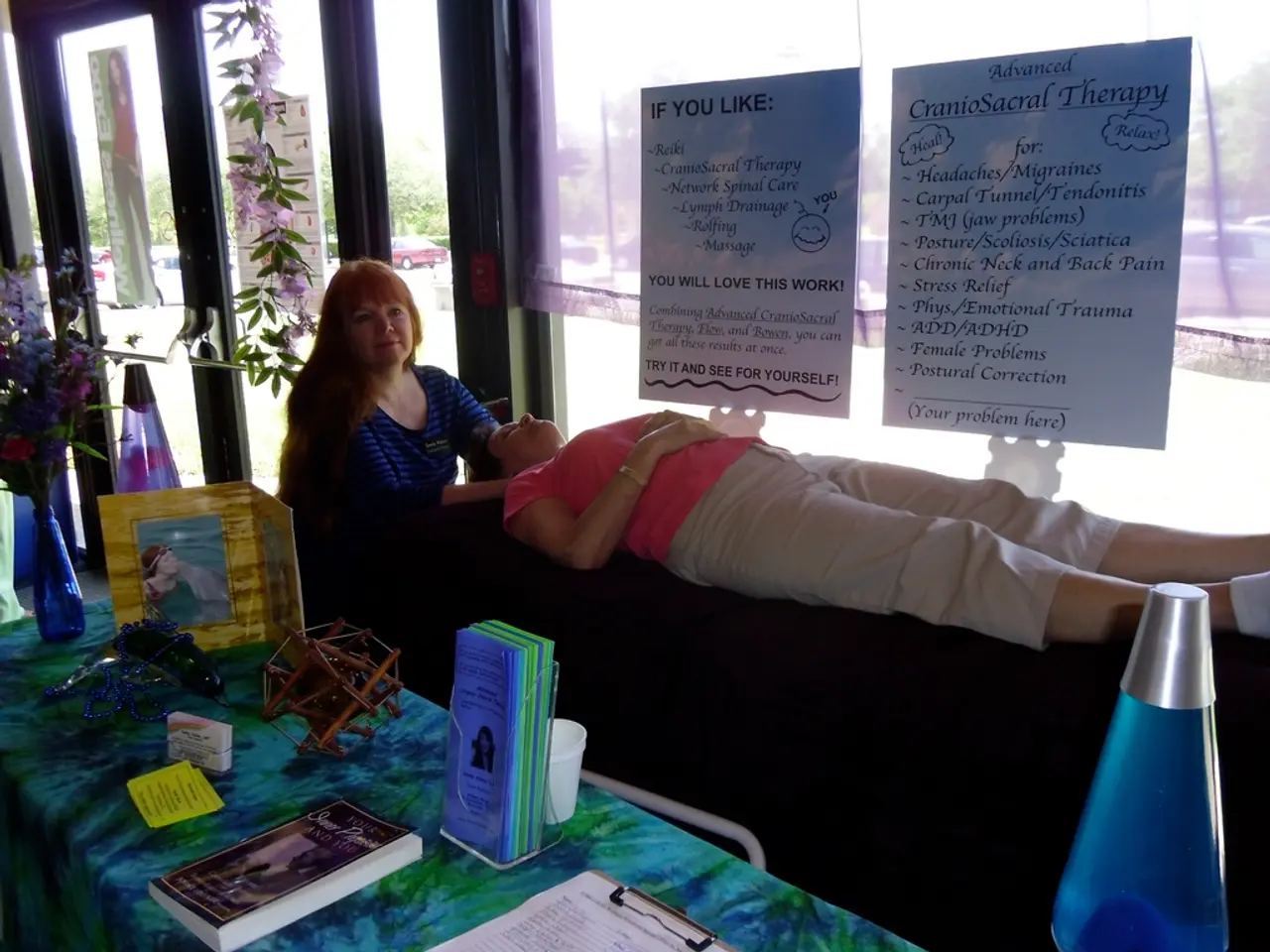Strategies for conquering imposter syndrome, as detailed by psychological experts
In the realm of psychology, impostor syndrome has been a topic of interest for several decades. Psychologists from Goethe University Frankfurt have identified two main types of impostor syndrome: the 'Perfectionist' and the 'Expert'.
The Perfectionist, as the name suggests, sets extremely high standards for themselves. They feel like a failure when they don't meet these standards, leading to feelings of inadequacy despite successes. On the other hand, the Expert feels like a fraud because they believe they must know everything and fear being exposed when they don't.
Impostor syndrome is not a new phenomenon. It was first noticed by psychologists in 1978 and is common among those who work in high-pressure environments, such as medicine, STEM, academia, and among students. In fact, between 70 and 80% of the general population has experienced impostor syndrome at some point in their life.
Women are more likely to experience impostor feelings, according to a recent meta-analysis of 100 studies. This could be due to systemic factors and internalized biases about women's role in the workplace.
The excessive desire to succeed, often referred to as perfectionism, has significantly increased in young people since the 1980s. This pressure to excel can contribute to feelings of impostor syndrome.
But there are ways to combat impostor syndrome. Dr Valerie Young defines impostor syndrome as the belief that you are not as intelligent, capable, confident, and talented as others think, despite past accomplishments. Documenting these accomplishments is key in combating impostor syndrome.
Keeping an achievement journal can be helpful. Even though it may seem vomit-inducing, writing down three achievements at the end of the day can help change one's mindset.
The "fake it until you make it" mindset can also help. By adapting this approach, one doesn't change into a new person overnight, but it can help to vastly decrease the time spent feeling like an impostor.
Reframing impostor syndrome as a humble realist can also help. Humble realism, accepting one's strengths and weaknesses, can help stop feeling like an impostor. Deliberately messing up a little can also help quieten impostor feelings.
Psychologists at the University of Athens have theorized that underestimating your skills could be a stress-response safety mechanism designed to push you to put more effort into tasks and prompt you to consider any possible shortcomings.
Sharing impostor feelings with colleagues can normalize the experience and provide support. It's important to remember that even successful individuals like Albert Einstein, a brilliant scientist, felt like a fraud at times before his death.
In conclusion, impostor syndrome is not a medically or psychologically diagnosable condition, but an experience or pattern of experiences. By understanding the two main types of impostor syndrome and adopting strategies to combat it, one can navigate their professional and personal life with more confidence and less self-doubt.
- In the domain of health-and-wellness, addressing impostor syndrome is crucial for enhancing personal growth and self-development.
- The Perfectionist in psychology, characterized by high standards and self-criticism, may lead to feelings of inadequacy despite achievements in fields like medicine and engineering.
- Research in psychology over several decades has identified the 'Expert', another type of impostor syndrome sufferer who fears being exposed for lacking complete knowledge.
- This syndrome, first noted in 1978, is common among those in high-pressure environments and up to 80% of the general population has experienced it at some point.
- Women are more likely to experience impostor feelings due to systemic factors and internalized biases, according to a recent meta-analysis.
- The excessive desire to succeed, or perfectionism, has significantly increased in young people since the 1980s, contributing to feelings of impostor syndrome.
- To combat these feelings, maintaining an achievement journal and documenting accomplishments, and adopting a humble realist mindset that accepts one's strengths and weaknesses are effective strategies.
- Sharing impostor feelings with colleagues can normalize the experience and provide support, as even successful individuals like Albert Einstein have felt like impostors at times.






